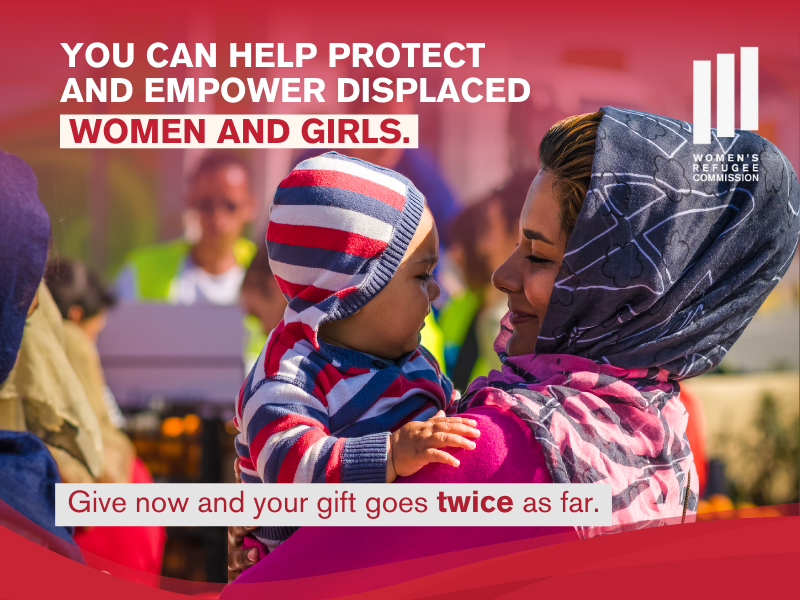WRC Reacts to the US Government Announcement That It Will Begin Detaining and Deporting Immigrant Families
Plain and simple, family detention is an awful and damaging process. It profoundly and irreversibly affects the physical and mental health of children and breaks down parent-child relationships. We are gravely concerned by the Administration's announcement that it will expand the use of family detention and deny families full access to protection under U.S. and international law. While the administration is understandably under pressure to create order out of this humanitarian crisis, locking babies in prison cells and deporting women and young children to dangerous situations are not the answers.
“When we visited the Hutto facility in 2006, DHS claimed the facility was specially equipped to meet families needs and would put an end to the separation of families in detention. Instead, we found babies in prison jumpsuits, families sleeping in cells with open-air toilets, highly restricted movement and only one hour of recreation per day. Detainees were subject to alarming disciplinary tactics, including threats to separate children from their parents. After public outrage and lawsuits, that facility was closed for families.”
“Alternatives to detention — including telephonic check-in and community supported pre-hearing release — are over 96% effective in ensuring court appearances. They are also more economical and more humane.”
“While we applaud the administration and Vice President for announcing an aid package to El Salvador, Honduras and Guatemala to provide return and reintegration support to deported migrants, improve human development programming in the region and address the root causes of this crisis — it should be accompanied by a commitment to the protection of human rights on American soil.”
The Women's Refugee Commission recommends:
- As a general rule, families should not be detained. We understand that for processing purposes, or while awaiting humane transit, some centers may be necessary to deal with the large numbers of people arriving. But every effort must be taken to ensure that the facilities are equipped to handle families’ and children’s needs, and that families are moved out of detention as soon as possible. Community support or alternatives to family detention that also ensure appearance at hearings have been effective in the past, and should be utilized as widely as possible.
- Legal orientations are a must. All families should receive full legal orientation presentations or some equivalent explanation of their rights as soon as possible, including information about their rights and about the asylum process, before having a credible fear interview.
- Everyone seeking refuge should be afforded full protection under U.S. and international law. There should be no exceptions for any child, family or other refugee seeking protection.
- “Expedited” screenings must still take into account the traumatic experiences of those fleeing. In many cases people fleeing rape, abuse and other violence are too traumatized to recount intimate details, particularly if they are still in detention or if their children are present. We must ensure that expedited screenings do not become a tool to repatriate people back to dangerous situations.
- The UN refugee agency, UNHCR, should be brought into processing centers to monitor or at a minimum to ensure that children and families know their rights. UNHCR is the international expert on refugee and protection determinations. Their support in this process will lend credibility and legitimacy and help make the process run smoothly without compromising our values.
- Repatriations must not occur for anyone deemed by UNHCR to warrant further protection. The U.S.’s threshold for protection is already in many ways less welcoming and protective than international standards. The U.S. must ensure that any new attempts to expedite removals do not further erode these protections.
- Repatriations must be conducted in a safe manner, and must include appropriate reintegration support so that children and families are not just thrust back into the same dangerous situations that forced them to flee in the first place.
- The U.S. must address the root causes in Central America, rather than simply trying to keep people from fleeing to safety.
# # # # #


